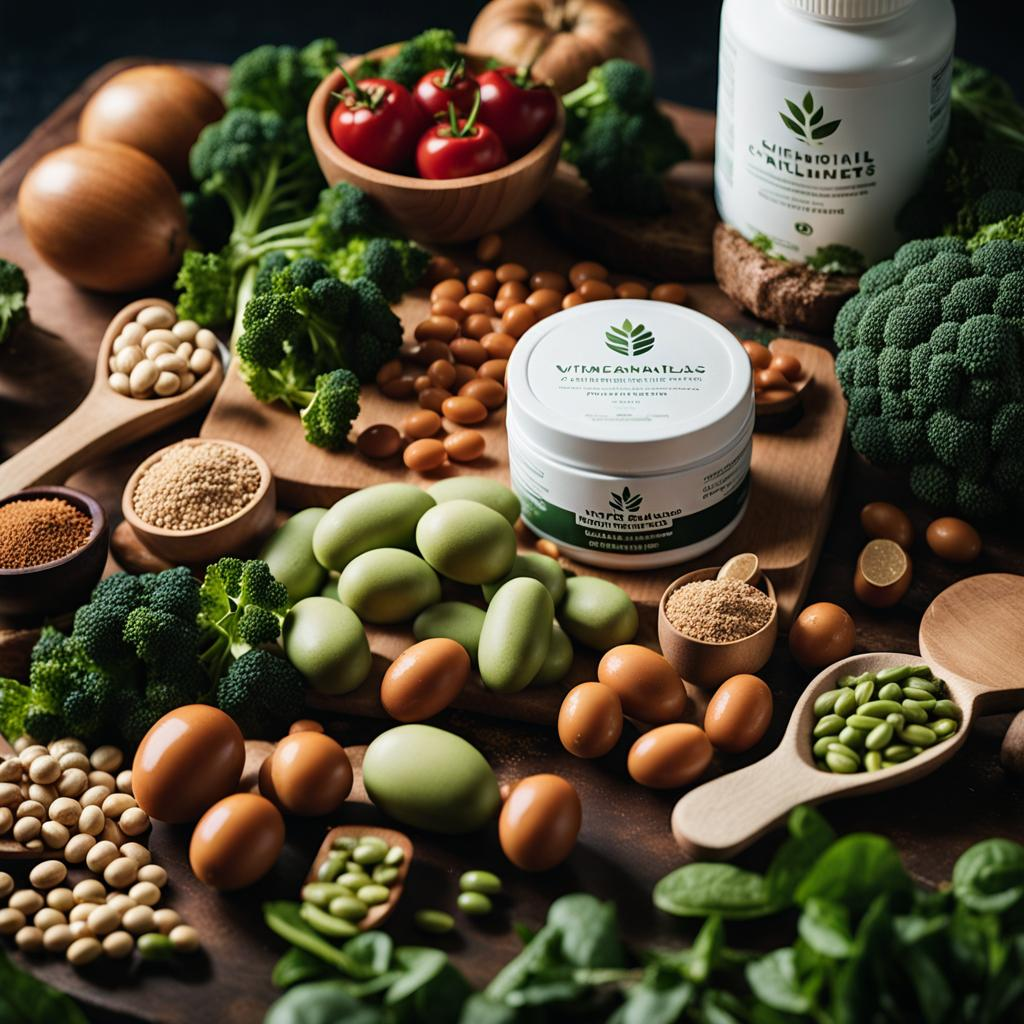Fast Food and Obesity: Making Smarter Choices for Your Family's Health
Hey there, busy parents and active adults! Let's chat about a topic that's probably on your mind more often than you'd like - fast food and its impact on our waistlines. We know you're juggling a million things, and sometimes, grabbing a quick burger or pizza seems like the easiest option. But with obesity rates on the rise, it's time to take a closer look at our fast food habits and how they affect our health.
Boost Your Health: Creative Ways to Eat More Fruits and Vegetables Every Day
Incorporating more fruits and vegetables into your diet is one of the best ways to enhance your overall health. However, many people struggle to meet the daily recommended intake for various reasons such as taste preferences, lack of time, or simply forgetting to include them in their meals. This article explores practical and creative ways to sneak fruits and vegetables into your diet, ensuring you reap numerous health benefits without feeling forced to eat them.
Fasted Cardio: The Ultimate Guide for Weight Loss and Fat Burning
Are you tired of hitting plateaus in your weight loss journey? Have you been curious about the buzz surrounding fasted cardio and its potential benefits? Look no further! In this ultimate guide, we'll explore exercising on an empty stomach and how it can supercharge your fat-burning efforts.
The Protein-First Eating Strategy: Revolutionising Your Diet for Active Adults and Restless Parents
Numerous diets promise rapid weight loss and muscle gain in nutrition. However, the protein-first eating strategy stands out for its simplicity and scientific backing. This approach prioritizes protein in every meal and snack, offering numerous benefits for health, body composition, and overall well-being.
The Ultimate Guide to Vegan Supplements: Ensuring Optimal Health and Performance
Adopting a vegan lifestyle offers numerous benefits for personal health and the environment. However, by excluding animal products, vegans may miss out on essential nutrients typically abundant in animal-derived foods. This guide explores the key supplements necessary for maintaining optimal health, especially for those engaging in intense physical activities or aiming for muscle development.
What Supplements Do You Need?
In recent years, nutritional supplements have surged in popularity, becoming a staple in many people's daily routines. A striking 2022 survey revealed that three-quarters of over 3,100 U.S. adults incorporate some nutritional supplement into their regimen.
Interestingly, a significant % of this group, 52%, opts for speciality supplements, including omega-3s, probiotics, or fibre, highlighting a growing trend towards targeted nutritional enhancement.
The Scale: A Friend or A Foe?
Have you ever experienced that exhilarating feeling of fitting perfectly into your workout clothes, feeling stronger than ever at the gym, and even receiving compliments on your physique, only to have your mood dampened by a number on the scale? If so, you're not alone.
This story is typical among fitness enthusiasts, particularly those who emphasise scale weight as the primary indicator of their fitness progress.
While some may not be as affected by the scale, preferring to rely on visual cues or body composition scans, others find it challenging to shake off the disappointment of seeing an unexpected weight gain.
The fitness journey is filled with personal milestones and individual definitions of success, but it's crucial to understand the multifaceted nature of progress, especially when it involves strength training. So, before you let the scale dictate your mood or your perceived achievements, let's delve into why an increase in weight might be a sign of positive development.
The Role of Vitamin D in Enhancing Sports Performance
Exploring vitamin D's impact on athletic prowess uncovers an intricate relationship between this essential nutrient and various facets of physical health and performance. Dubbed the "sunshine vitamin," vitamin D's influence extends beyond its critical role in bone health to potentially enhance muscle function, immune system strength, and overall athletic capability.
Protein Digestion and Absorption: A Guide to Maximising Your Gains
In the quest for optimal health and peak physical performance, understanding the intricacies of protein digestion and absorption emerges as a crucial puzzle.
The process is influenced by a tapestry of factors, from the very nature of the foods we consume to the methods employed in their preparation and, finally, our body's unique capacity to process these nutrients. This article dives deep into these dimensions, shedding light on harnessing protein's power to fuel your body more effectively.
Navigating the College Years: The Freshman 15
The "freshman 15" myth suggests students gain 15 pounds in their first college year, but research from the University of Georgia reveals a more complex reality.
This study indicates that factors like physical activity, dietary habits, and university resources significantly impact weight changes, rather than just unhealthy eating or lack of exercise. It challenges the certainty of the freshman 15, showing that weight management in college requires a comprehensive approach, including healthy lifestyle choices and support from educational institutions.
Facing the Second Half of Your Fitness Life
Entering the second half of your fitness life is a pivotal moment that prompts introspection and, more importantly, a choice.
It's about deciding to age gracefully, embracing the changes that come with time rather than resisting them out of fear or denial. This phase of life doesn't signify the end of physical capability but rather a transition into a period where wisdom, experience, and a mindful approach to health take precedence.
Understanding Metabolic Adaptation: Why It's Harder to Lose Weight Over Time
Many find that shedding pounds becomes increasingly difficult when embarking on a weight loss journey. This common challenge is often a result of metabolic adaptation. This natural process can make consistent weight loss seem like an uphill battle.
Understanding metabolic adaptation is crucial for anyone serious about health and fitness. It's not just about what you eat or how much you exercise; it's about how your body responds to these changes over time. This article delves into the science behind metabolic adaptation, explaining why losing weight gets harder and how to manage this process effectively.
The Role of Epigenetics in Physical Fitness and Diet Response
In the quest for optimal physical fitness and dietary response, we often overlook one significant factor - epigenetics. Derived from the Greek 'epi' (over, above), the term 'epigenetics' refers to changes in gene expression influenced by factors other than the underlying DNA sequence. Understanding this complex yet fascinating field can provide invaluable insights into our fitness journey and dietary responses
Nutritional Psychiatry: How Diet Influences Mental Health
In the quest for optimal mental health, we often focus on therapies and medications, overlooking a fundamental factor: our diet. The food we consume does more than fill our stomachs; it fuels our brain, influences our mood, and significantly impacts our mental health. This field of exploration is known as Nutritional Psychiatry. But how exactly does diet sway our mental well-being? Let's unravel this intricate relationship.
Nutrigenomics: Personalising Diet Plans Based on Genetic Makeup – Expanded Analysis
Nutrigenomics, or nutritional genomics, examines how genetics affect our response to diet and nutrition. This relatively new field combines the science of genetics with nutrition to provide personalised dietary recommendations based on an individual's genetic makeup.
In recent years, interest in nutrigenomics has increased significantly due to its potential to improve health outcomes and prevent chronic diseases. But what exactly is nutrigenomics, and how can it help us create more effective and personalised diet plans? Let's delve deeper into the world of nutrigenomics.
Hydration Myths Debunked: How Much Water Do We Really Need?
Humans can survive weeks without food but only days without water. Water is more than just a thirst quencher. It’s the unsung hero behind every bodily function, from waste removal to temperature regulation and digestion to nutrient transport. But when it comes to hydration, myths and misconceptions are as abundant as the water in the ocean. The most prevalent one? You can't drink too much water. Dive into this post as we debunk hydration myths and shed light on how much water we need.
Exploring the World of Adaptogens and Their Potential Benefits in Wellness
In recent years, the wellness industry has seen a surge in interest in natural remedies and holistic health approaches. One such area that has generated significant buzz is the use of adaptogens. This ancient practice, rooted in traditional Chinese and Ayurvedic medicine, is now making a splash in the modern wellness landscape. But what exactly are adaptogens? And what potential benefits might they hold for our well-being?
The Synergy Between Omega-3 Fatty Acids and Physical Performance
In recent years, the fusion of nutrition and exercise science has shed light on how specific nutrients can enhance athletic performance. Among these, omega-3 fatty acids have emerged as a crucial element in the diet of athletes and fitness enthusiasts alike. These polyunsaturated fats, found abundantly in fish oil, flaxseeds, and walnuts, are beneficial for cardiovascular health; they are also proving to be influential in improving physical performance and recovery.
The Mechanisms Behind Exercise-Induced Antioxidant Defense
Exercise is universally touted for its myriad benefits, from improved cardiovascular health to enhanced mental well-being. One of the lesser-known yet critical advantages of regular physical activity is its role in bolstering the body's antioxidant defences. This process is a sophisticated interplay between the production of reactive oxygen species (ROS) during exercise and the body's subsequent upregulation of its endogenous antioxidant systems. Delving into the biochemical dance of exercise-induced oxidative stress and antioxidant response reveals how our bodies are designed to thrive and adapt to physical challenges.
Phytochemicals in Sports Nutrition and Muscle Inflammation
In sports nutrition, the focus often gravitates towards proteins, carbohydrates, and fats. However, there is a growing interest in the role of phytochemicals - compounds found in plants - in enhancing athletic performance and recovery. Notably, their impact on muscle inflammation is a subject of increasing research and practical significance.




















